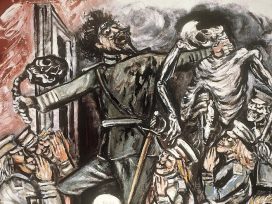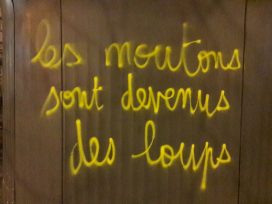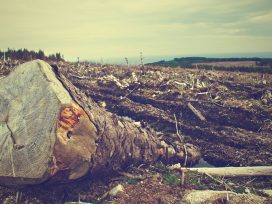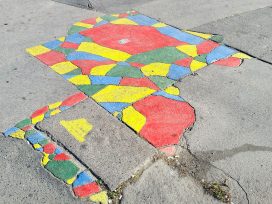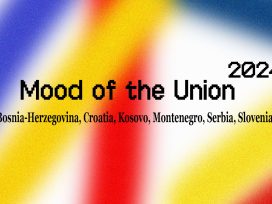In his sweeping survey of ‘democides’, John Keane associates democracy with all that is deserving of respect, including nature itself. But ‘true democracy’, as Marx put it, is much less polite. Can we really invoke it to save the planet?
Some environmentalists have warned that we are facing ‘the end of nature’. Under the circumstances, might the idea of democracy also be erased, like a face drawn in sand at the edge of a rising sea?
In his essay ‘How democracies die’, a trenchant tour d’horizon of the many challenges democracies currently confront, John Keane argues as much. But if the popularity of illiberal populists and armed insurrectionists worry him, Keane is even more alarmed by the threat posed to liberal democracies by climate change: it’s the growing ‘destruction of the living environments in which humans dwell’, he writes, that ‘should be the most worrying for democrats of all persuasions everywhere’.
So, what is to be done?
Does democracy offer any kind of solution, however partial, to ecological challenges that are inherently global, not just national, never mind local?
Or is modern democracy, as a sometimes cumbersome, even self-destructive form of collective self-government, itself one source of our apparent inability to address the fate of the earth in a timely fashion?
*
In addressing such questions, everything hinges on how we decide to define democracy.
Keane uses democracy as if it were a syncretic term compatible with the virtues of moderation and knowing one’s limits. This is democracy as championed by the first self-described European ‘liberals’, political commentators like Benjamin Constant and Madame de Stael who wished to distinguish themselves from the blood-thirsty radicals of the French Revolution. In the words of the twentieth-century German sociologist Norbert Elias, democracy ‘requires a degree of self-control from the people belonging to it’. Or, as Keane puts it: ‘democracy is tenderness with children, respect for women and the right to be different. Democracy is humility.’
It’s nevertheless worth recalling that ‘liberalism’, unlike democracy, is a relatively late addition to our political lexicon – and that many nineteenth century liberals vehemently opposed movements demanding more political power for workers who owned little property and lacked a formal education. The novel term ‘democracy’ itself combined the Greek word demos, meaning ordinary people, with kratos, a Greek term for power that is also strongly suggestive of armed force.In other words, the crux of democracy is ‘people power’.
In ancient Athens, ordinary people exercised power directly in a relatively compact city-state in which all citizens were able to gather in monthly legislative assemblies, while the administrative and legal work of government was handled by ordinary citizens chosen by lot. In the French Revolution, large crowds of ordinary people armed with muskets and pikes seized power in a self-conscious effort to replace a constitutional monarchy with a democratic republic controlled by ‘The People’ – and in this way, democracy was resurrected in a modern context, the bloody result of an armed insurrection.
Ever since, almost all modern regimes that have claimed to be democracies have rested on some form of people power, whether realized in a revolution, or by upholding a more mild-mannered doctrine – often, a myth – that all legitimate governments must be created by, and subjected to, the will of a people. Instead of exercising power directly, as radical democrats did during the French Revolution, a nominally sovereign people will, through periodic popular votes, transfer their power to the legislators and leaders they elect to represent their interests.
Needless to say, large-scale modern democracies built around representative institutions are prone to frustrate anyone hoping to play a more direct role in political decision making, which remains the implicit promise of democracy as an idea, a fantasy, and an actually existing form of government.
As a result, the democratic project in the modern world is inherently unstable.
Frustrated in practice, the promise of people power recurrently produces new efforts to re-assert the collective power of a people, sometimes through insurrections and revolts. If an observer agrees with the demands being made, they may hail such uprisings as a renaissance of the authentic spirit of ‘true democracy’, to borrow the term Marx used in his 1843 critique of Hegel’s Philosophy of Right.
But if an observer dislikes the demands being made – perhaps for an organic form of community defined in terms of ethnicity – they are liable to dismiss such revolts as Keane does – as ‘populist demagoguery’.
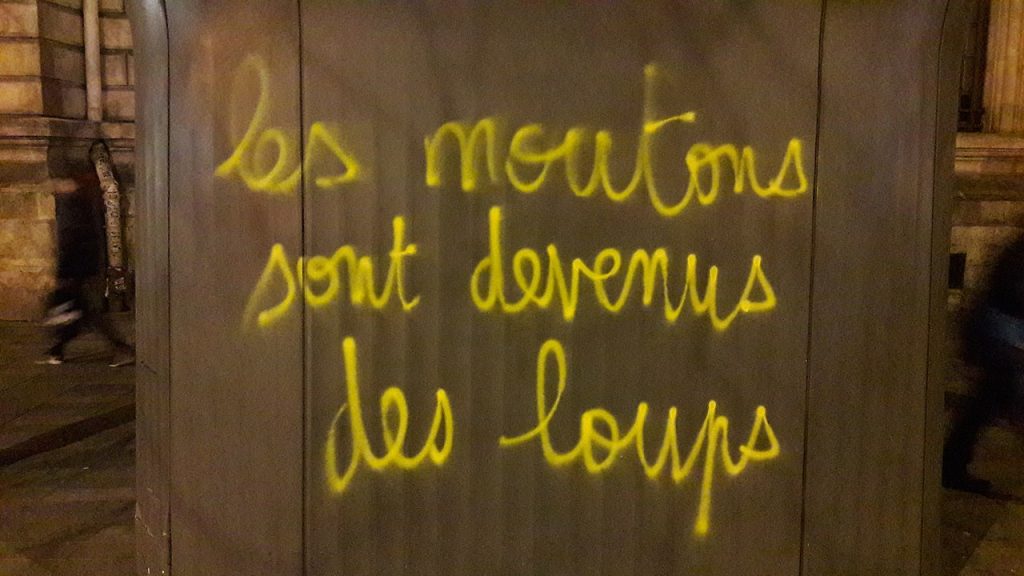
‘The sheep have become wolves’. Paris 2019. Source: Wikimedia Commons
*
It’s worth recalling that fears about democracy’s moral value and viability are nothing new. At the zenith of direct democracy in ancient Athens, in the fifth century BC, one critic called it a ‘patent absurdity’ – and so it seemed to most political theorists from Aristotle to Edmund Burke, who considered democracy ‘the most shameless thing in the world’. As the American founding father John Adams warned, ‘there never was a democracy yet that did not commit suicide’.
But this isn’t the end of the potential limits of people power as a desirable form of collective organization.
As Keane puts it in the final sentence of his essay, democracy is arguably ‘the most anthropocentric ideal ever conceived’ – a bold claim that rings true – and it ‘will have no future unless its ideals and practices are rid of the deep-seated prejudice that “humans” live outside a “nature” whose own living and dying rhythms are now crying out for democratic recognition and respect.’
Keane himself is sanguine that liberal democracies are up to the ecological challenge. ‘Global bio-agreements’, he notes, are already in place and for the first time in the history of democracy, ‘there are efforts to codify and enforce the legal rights, powers, duties and liabilities of ecosystems’. Here Keane refers in passing to ‘occupations’, which make this all sound vaguely radical, but without exploring in any detail what it means to extend ‘legal rights’ and protections to animals, endangered species of flora and fauna, even endangered areas of stones and rocks.
Laws granting personhood to animals, plants and stones may well help preserve ecosystems. But in what sense are they democratic?
It beggars belief to suppose that a random sample of ordinary people (perhaps chosen by lot, using a democratic technique favored by the ancients) would be able to marshal the efforts of scientific experts in all nations to slow, and perhaps reverse the destruction of our planet’s ecosystem. Or imagine asking voters around the world to elect a group of climate experts and philosophers to represent the hypothetical interests of earth’s ecosystem. Wouldn’t the vast majority of people in any current democratic polity, if consulted at all, simply laugh at the absurdity of thinking ecosystems were more important than the welfare of human beings struggling to flourish in the here and now?
*
John Keane has devoted most of his life to taking seriously the idea of democracy, in book after book on civil society, violence and democracy, media decadence and democracy, and so on. I admire his unwavering commitment to democratic ideals, and his willingness to grapple with new challenges to modern democracy, such as those presented by the internet and social media, which enhance the capacity of propagandists and advertisers to manipulate public opinion.
Still, in my view, democracy shouldn’t be treated as a totemic term that is virtually sacralized, so that, by a tacit conflation with liberalism, it is purged of any unpleasant associations with angry crowds and harmonized instead with an astonishing host of recently articulated ‘rights’ held by indigenous peoples as well as animals, flora, fauna and even stones.
Progressives like Keane need to understand that they have no monopoly on the rhetoric of democratic idealism. On 6 January 2021, a significant group of my fellow Americans laid siege to what they perceived as a distant fortress, attacking officials and institutions that they believed had usurped the powers of ordinary people whose legitimate sovereignty their president was seeking to restore. In fact, public opinion surveys suggest that a majority of Americans, on both the right and the left, are united in fearing that democracy in America is at risk – it’s just that they disagree on why (one side blames socialism, the other white supremacy).
At the same time, Keane is right to have noticed how profoundly and inescapably anthropocentric the classical idea of democracy is at its core. Perhaps the most prominent ancient Greek thinker to defend Athenian democracy was Protagoras, renowned for his maxim ‘man is the measure of all things’.
To place all political power in the hands of ordinary people is to make an extraordinary wager on the good will and magnanimity of the human species, and on what one might call ‘the wisdom of crowds’ – a wager that Condorcet made in 1793, in the aftermath of the storming of the Tuileries palace and the execution of the French king, by drafting what he intended to be the world’s first truly democratic constitution. (By contrast, the word ‘democracy’ appears nowhere in America’s constitution of 1787.)
But if anthropocentrism really is an ethical mistake, as some environmental philosophers now argue, then shouldn’t democracy be staunchly opposed? After all, there are many other good reasons to be wary of what a people trying to exercise its sovereign rights may produce. Democratic insurrections obviously can create perverse results, as witness the ‘Arab Spring’ of 2011 – and so can democratic elections, as witness the election of Donald Trump as president of the United States five years later.
Despite the risks, both Rousseau and Jefferson invoked a relevant maxim in defense of their own counter-intuitive faith in ordinary citizens: Malo periculosam, libertatem quam quietam servitutem – ‘I prefer a dangerous freedom to peaceful slavery.’
Is that still an apt, if anthropocentric, motto for our times?
Given all the problems our planet now faces, one has to wonder.
Published 28 February 2023
Original in English
First published by Eurozine
Contributed by Public Seminar © James Miller / Public Seminar
PDF/PRINTIn collaboration with
In focal points
- Living dead democracy
- Why Parliaments?
- Spelling out a law for nature
- No more turning a blind eye
- The end of Tunisia’s spring?
- Protecting nature, empowering people
- Albania: Obstructed democracy
- Romania: Propaganda into votes
- The myth of sudden death
- Hungary: From housing justice to municipal opposition
Newsletter
Subscribe to know what’s worth thinking about.
Related Articles
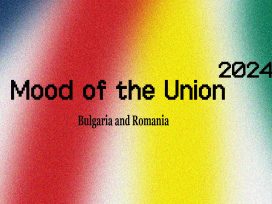
Fading hopes for change
Bulgaria and Romania
In Bulgaria and Romania, the EP elections coincide with national elections. Interminable political instability, corruption and socioeconomic tensions all contribute to voter fatigue. With the far right in the ascendant, 9 June could be a watershed.
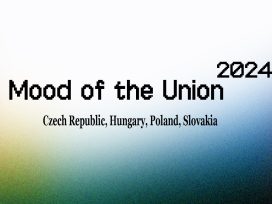
Prefiguring Europe’s future
Czech Republic, Hungary, Poland, Slovakia
Since the war in Ukraine, the Visegrád Four group no longer articulates a common voice in the EU. Even the illiberal alliance between Hungary and Poland has come to an end. Yet in various ways, the region still demonstrates to Europe the consequences of the loss of the political centre.
